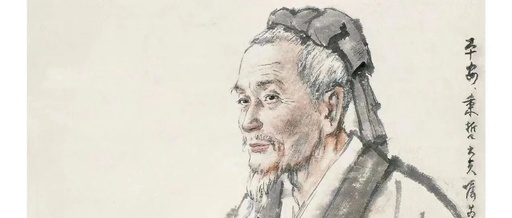【6.5 】
In men, the pulse is weak, sinking, and wiry, with no chills or fever, shortness of breath, difficulty urinating, pale complexion, occasional eye closure, accompanied by epistaxis, and fullness in the lower abdomen; this is caused by labor.
——————————————————————————————————————————
【Notes】
This section presents several unique symptoms of labor syndrome, classified by the master Zhang Zhongjing.
1. Weak, sinking, and wiry pulse in men:This indicates a deficiency of both Qi and blood.A weak pulse: is when you feel a slight pulse, but it disappears with a little pressure, known as a weak pulse.Or a sinking pulse: which can only be felt near the bone, and disappears with heavier pressure.Or a thin pulse, which resembles a string, is also a weak pulse.——————————————————————2. Other symptoms:The first situation is that the patient does not exhibit chills or fever. When asked if they feel cold or hot, they say: no.Shortness of breath: means the patient has difficulty breathing even with slight movement, and often experiences abdominal distension and pain. Difficulty urinating: frequent urination with little output. Pale complexion: a sallow appearance. Often, the head feels dizzy. Additionally, epistaxis occurs frequently.———————————————————————3. Root causes of symptoms:These symptoms arise when there is deficiency in the liver, heart, spleen, lungs, and kidneys simultaneously. Generally, difficulty urinating indicates kidney dysfunction. A pale complexion suggests spleen dysfunction, as the complexion is derived from spleen and stomach function. Frequent nosebleeds indicate liver issues.Why discuss these symptoms? The main reason is to inform that when such conditions arise, it indicates that the five organs (liver, heart, spleen, lungs, kidneys) are all deficient, yet the person may appear normal; this is labor syndrome, ‘this is caused by labor.’———————————————————————4. Expanding on difficulty urinating and fullness in the lower abdomen.Why is there difficulty urinating? Because of excessive dampness. When dampness is excessive, we often pay attention to urination. Let me illustrate: oh, this is the navel, this is the abdomen; in the perspective of the Inner Canon, the spleen governs the abdomen, so if there is a problem with the liver, it can damage the spleen, leading to abdominal distension and fluid accumulation.Thus, treating the spleen can help eliminate excess fluid.Similarly, the spleen governs dampness, and when dampness accumulates in the lower abdomen, it burdens the bladder, causing difficulty urinating.Our method to treat dampness is to promote urination to expel it.———————————————————————5. Excessive nourishing of Yin can also lead to labor syndrome.As previously mentioned, the method of nourishing Yin in warm diseases; if you encounter a patient with hemoptysis or seminal emission, this seminal emission is not only about men’s semen; TCM believes that essence and blood share the same source, so hemoptysis and seminal emission are similar. Additionally, sweating and blood are also from the same source, so if a person has night sweats or excessive sweating, it falls within the same category as hemoptysis and seminal emission.If you encounter hemoptysis and seminal emission, treating it as Yin deficiency, practitioners of the warm disease school often see all diseases as Yin deficiency. If you use Yin deficiency methods to treat and prescribe cold, Yin-nourishing herbs, the patient may develop labor syndrome, which can also be a type of labor syndrome caused by the physician. Remember the six major pitfalls we discussed earlier, so do not use Yin-nourishing herbs.Note: For educational reference only, TCM is profound and emphasizes the differentiation of syndromes based on the six channels, observation, inquiry, and pulse-taking; it is not a one-day effort, and self-medication should be avoided!

